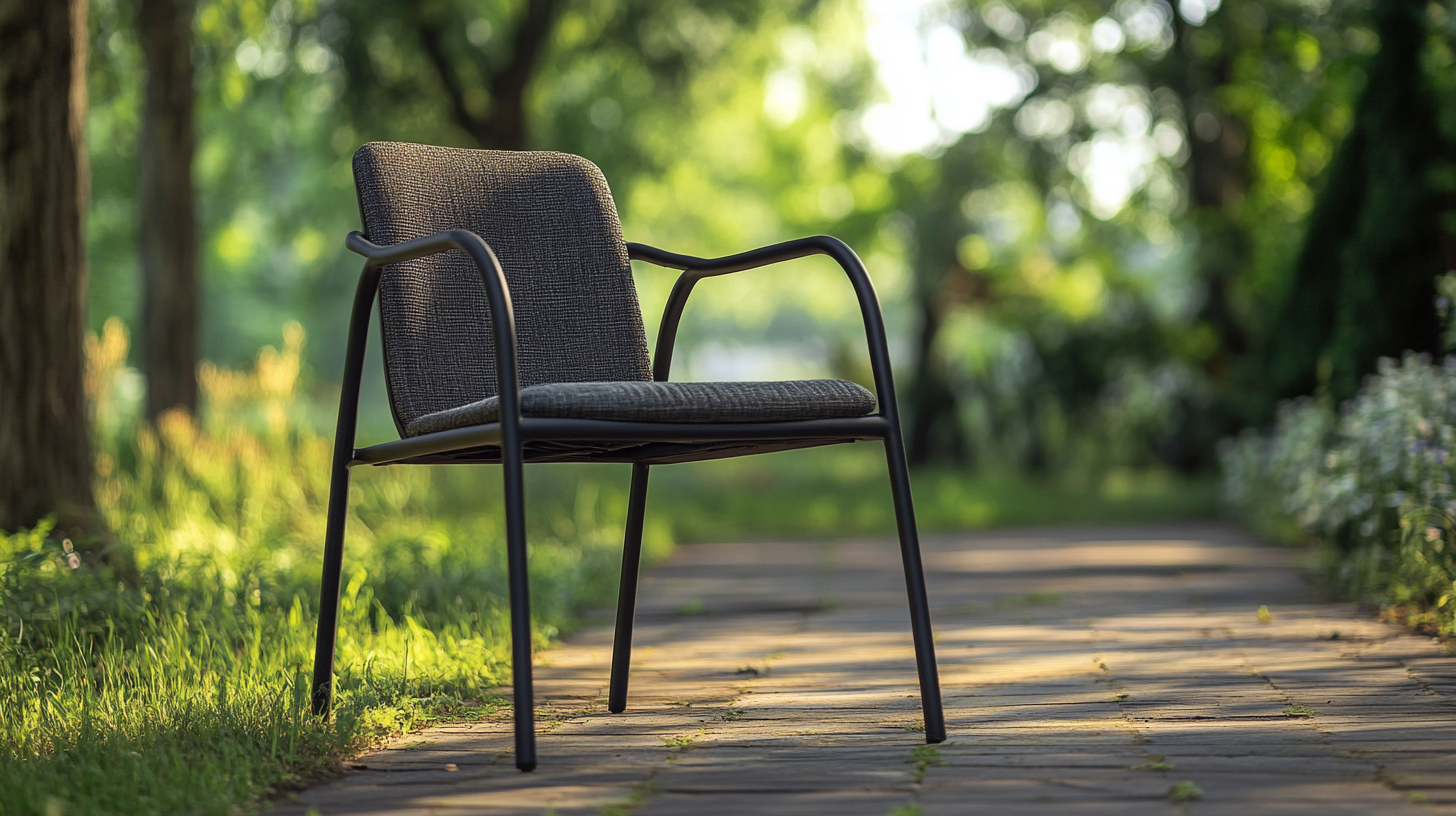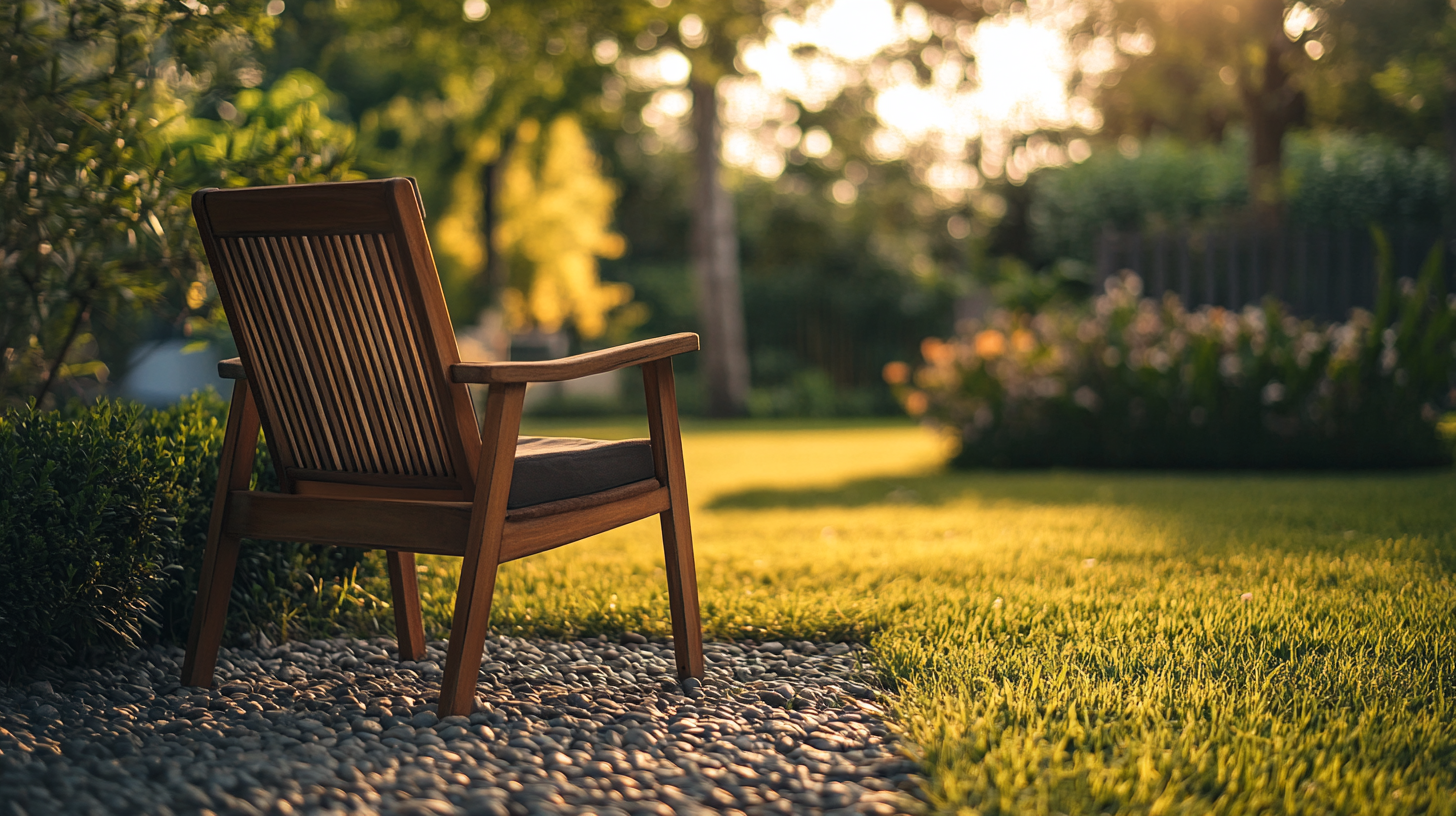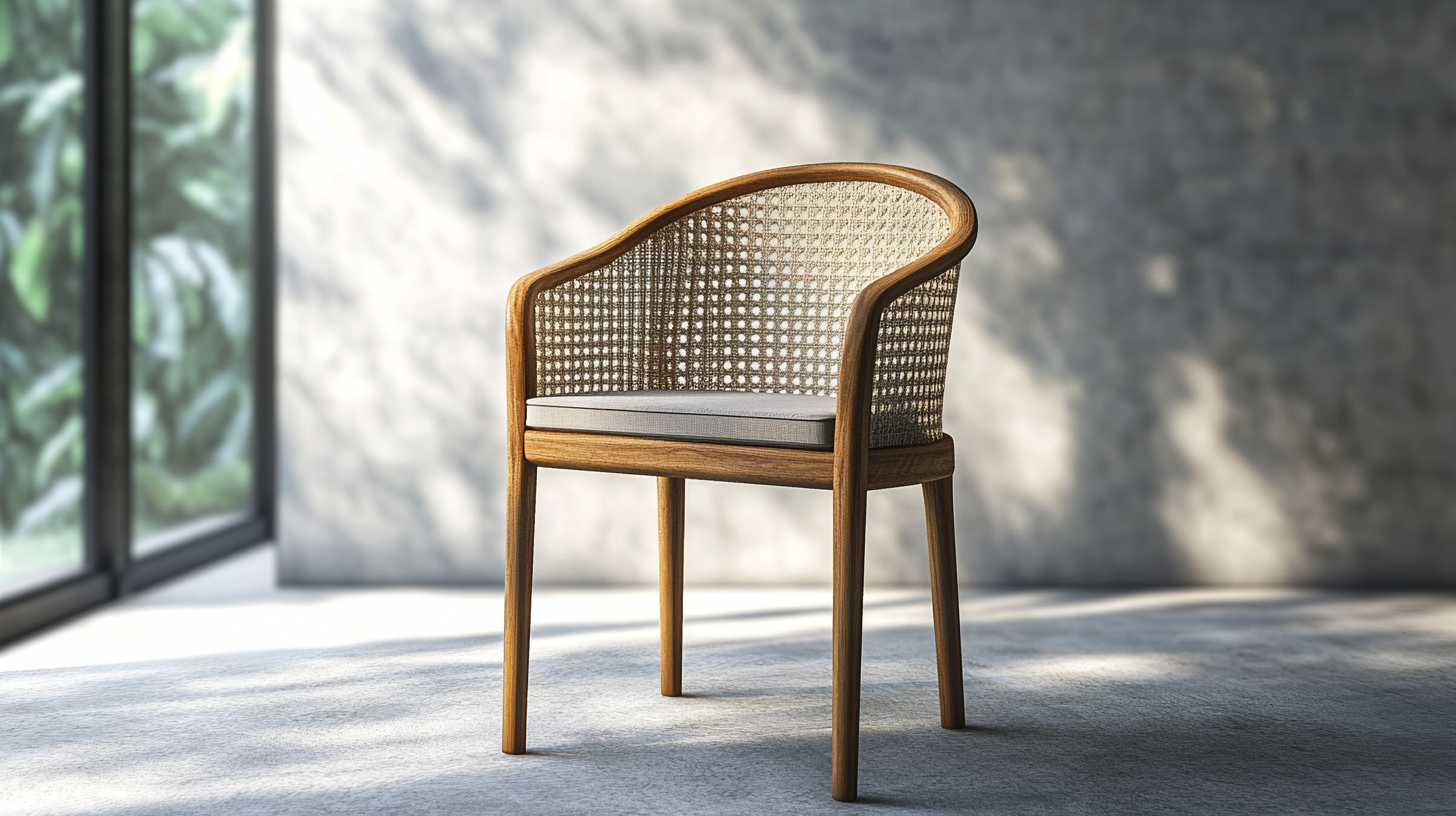The Ultimate Resource for Sourcing High-Quality Garden Chairs Worldwide
In today’s world of outdoor living, having the perfect garden chairs can elevate your backyard experience, creating an inviting space for relaxation and entertainment. With countless styles, materials, and designs available, sourcing high-quality garden chairs that enhance your outdoor aesthetic while providing comfort can be a daunting task. This blog aims to be your ultimate resource, guiding you through the myriad of options available worldwide, ensuring you find the ideal fit for your garden or patio.
As we delve into the intricacies of choosing the right garden chairs, we will explore essential factors such as durability, design trends, and material options. Whether you are seeking contemporary minimalist styles, rustic wooden pieces, or eco-friendly alternatives, we will provide insights and tips to help you navigate the global market. Join us on this journey to discover the best garden chairs that not only meet your practical needs but also reflect your unique personal style.

Identifying the Key Qualities of High-Quality Garden Chairs
When sourcing high-quality garden chairs, it's crucial to identify the key qualities that differentiate premium products from subpar alternatives. According to a recent report by Grand View Research, the global outdoor furniture market is projected to reach USD 23.4 billion by 2027, driven largely by consumer demand for durable and stylish outdoor seating. Therefore, understanding these qualities can significantly enhance your sourcing strategy. First and foremost, the materials used in garden chairs are a critical factor. High-quality chairs often utilize sustainably sourced teak wood, aluminum, or weather-resistant synthetic wicker. A study from the Furniture Research Institute indicates that teak, with its natural oils, can last up to 25 years without requiring significant maintenance, making it an ideal choice for longevity. Additionally, lightweight aluminum frames offer a rust-resistant alternative that is both portable and sturdy, appealing to modern consumers seeking convenience without compromising quality. Another key quality to consider is design ergonomics. The right garden chair should not only be aesthetically pleasing but also comfortable for prolonged use. A report from the American Society of Interior Designers notes that ergonomic seating can reduce strain and enhance relaxation, leading to better consumer satisfaction. Chairs designed with proper lumbar support and armrest height can cater to a wide range of body types, making them a valuable addition to any outdoor space. Lastly, an effective finishing layer for garden chairs can significantly influence their durability and aesthetic appeal. High-quality UV-resistant finishes protect against sun damage and fading, extending the life of the product. According to a survey from the International Casual Furnishings Association, nearly 70% of consumers stated that color retention is a critical factor in their buying decision. By focusing on these key qualities, importers and retailers can ensure they source garden chairs that not only meet consumer expectations but also stand the test of time.

Exploring Materials: Wood, Metal, and Synthetic Options for Durability
When considering high-quality garden chairs, the materials chosen can significantly impact both their durability and environmental footprint. Traditionally, wood, metal, and synthetic options have dominated the market. Each material offers distinct advantages and drawbacks, influencing not only the aesthetics but also the sustainability of the product.
Wooden garden chairs embody a classic charm and warmth, appealing to those who appreciate traditional outdoor settings. However, the selection of sustainably sourced wood is crucial to mitigate deforestation and promote ecological balance. In contrast, metal chairs, often made from aluminum or steel, are lauded for their strength and resistance to the elements. Yet, they can be prone to rust in humid conditions if not properly treated. Innovations in coating technologies have enhanced the durability of metal furniture, making them a reliable choice for prolonged outdoor use.
Synthetic options, like polywood or recycled plastics, represent an emerging trend in outdoor furniture. These materials offer exceptional longevity and require minimal maintenance, providing a practical solution for busy households. Recent research highlights the potential of biodegradable plastics, such as those broken down by white-rot fungi, signaling a shift towards more environmentally friendly materials in the furniture industry. As the demand for sustainable products grows, exploring these new materials can lead to the creation of garden chairs that not only endure the test of time but also support our ecological responsibilities.

Sourcing Garden Chairs: Tips for Finding Reliable Manufacturers Worldwide
When sourcing garden chairs, finding reliable manufacturers is crucial to ensure quality and durability. Recent trends highlight a significant shift towards diversifying supply chains beyond traditional manufacturing hubs such as China. Companies are increasingly looking into regions like India, Vietnam, and Mexico, which offer lower production costs and unique advantages, significantly improving their sourcing strategies.
Utilizing online platforms tailored for manufacturers is another effective way to connect with trustworthy sources for garden chairs. As of 2025, the top 20 websites dedicated to manufacturer sourcing have gained traction among businesses. These resources provide essential insights and listings, enabling companies to easily compare options and find the best fit for their garden furniture needs.
Moreover, tapping into the excellence of locations renowned for specific materials can enhance product offerings. For instance, Vietnam has become a go-to for wood furniture, leveraging the country's high-quality timber and skilled craftsmanship. By exploring these diverse international avenues, businesses can significantly improve their product line, ensuring they meet consumer demands for quality and stylish outdoor furnishings.

Design Trends in Garden Furniture: What Buyers Are Looking For
When it comes to garden furniture, design trends are constantly evolving to cater to the diverse tastes and preferences of buyers. One prevailing trend is the emphasis on sustainability. Consumers today are increasingly mindful of environmental impact, leading them to select garden chairs made from eco-friendly materials such as reclaimed wood, recycled plastics, and sustainably sourced textiles. This ecological awareness not only influences purchasing decisions but also encourages manufacturers to innovate and create stylish pieces that are both attractive and sustainable.
Another important aspect of garden chair design is comfort. As outdoor living spaces become extensions of our homes, buyers are seeking chairs that offer the same level of comfort as indoor seating. This has resulted in the rise of ergonomic designs and plush cushioning that invite relaxation and leisure. Innovative features such as adjustable reclining positions and modular arrangements are also becoming popular, allowing users to customize their outdoor experience while enjoying the beauty of nature.
Aesthetic appeal remains a crucial factor as well, with buyers looking for chairs that enhance their garden's overall ambiance. From sleek, modern lines to rustic, traditional styles, the range of designs available is vast. Color palettes are also a key consideration, with earthy tones and vibrant hues dominating the scene. As trends continue to evolve, garden furniture will undoubtedly reflect the ever-changing desires of buyers seeking to create their ideal outdoor oasis.
Navigating Pricing and Quality: Ensuring Value in Your Purchase
When it comes to sourcing high-quality garden chairs, understanding the complex relationship between pricing and quality is crucial for ensuring value in your purchase. According to a recent report by IBISWorld, the outdoor furniture market is anticipated to grow at an annual rate of 5.5% over the next five years, reflecting the increasing consumer demand for durable and aesthetically pleasing garden furnishings. However, navigating this market can be challenging, as not all products are created equal, and price does not always correlate with quality.
To make informed purchasing decisions, it's essential to consider key factors such as materials used, brand reputation, and consumer reviews. For instance, a study from Statista revealed that 68% of consumers rely on product reviews when making outdoor furniture purchases. This highlights the importance of quality assurance—investing in garden chairs made from materials like teak or marine-grade aluminum can significantly extend the lifespan of the product, despite a potentially higher initial cost.
Furthermore, price variability can often be attributed to seasonal trends and supply chain fluctuations. Research by Grand View Research indicates that manufacturers are increasingly adopting sustainable materials, which can impact costs. When sourcing globally, ensuring that suppliers adhere to quality standards and follow ethical sourcing practices is paramount. By balancing these elements, consumers can secure high-quality garden chairs that not only enhance their outdoor spaces but also provide excellent long-term value.

